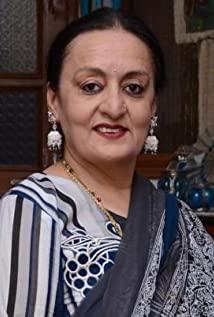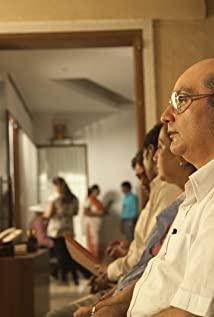Through the Widow's House, the film depicts a group of women oppressed by the widow system. Among them, there are those with vested interests who become accomplices at the top, and there are the oppressed who submit to the status quo by default. With the support of deep religious traditions, Indian society has always acquiesced in the existence of this cruel system. Women who are not oppressed by this system help others in the society to oppress women who are oppressed by the widow system. Even the widows form a deformed pyramid structure, and the widows at the top of the tower will oppress the widows at the bottom of the tower and take benefits from them. Therefore, they have also become loyal supporters of the widow system and accomplices in the oppression of other widows at the bottom. And the widows at the bottom were influenced by religion and silently endured this oppression. The birth of Gandhi and his ideas had a huge impact on Indian society, and female consciousness began to rise.
Although the emergence of Gandhi sowed a seed for the rise of female consciousness, the road to female liberation is full of thorns. In the movie, the young and beautiful widow Karianne fell in love with Nara Yang, a wealthy child. After talking under the tree that night, the two agreed for life and decided to get married. The little girl Chu Ya easily told the news to the owner of the widow's house. She was so angry that she cut Karianne's hair and locked her up. At this time, Carianne was the most rebellious. It firmly believes that she and Narayan can marry, and will not yield to the lewd power of the owner of the widow's house and break with the widow's house. But when she was crossing the river, she learned that Narayan's father was a nobleman who had hurt and played with her, she resolutely chose to turn around and tried to return to the widow's house. After she was rejected, she reluctantly sank the Ganges. In the final analysis, although Carianne, with the help of Narayan's inspiration, already has a sense of resistance. But she didn't completely liberate herself at all. She chose to return to the widow's house because of her deep identification with her widowhood. Narayan did not point out the way for her, but carefully weaved a fairy tale for her. When the fairy tale is broken, she can only try to get back to the starting point. Although the widow's house was her choice, the society did not give her enough living space or other choices. He can only go back to the widow's house, which is the tragedy of the society.
In contrast, Shakentara. A devout Hindu. She has become a real representative of the rise of female consciousness in the widow's home. She has no help from love, but has conscience. She wants to accept all the prejudice and oppression that society imposes on widows, but she cannot turn a blind eye to these oppressions. She also made it clear what she was thinking to the Brahman who preached, and the Brahman told her the fact that the decree that had been hidden was passed. She could finally face her conscience and rescue Chu Ya. Although she is a devout Hindu, she has never been able to reconcile with various injustices in society. Before Brahma told her that the decree was passed, she simply and rudely attributed this entanglement to "insufficient state." So she appears more pious, not because her faith is firm, but because she tries to untie the dead knot in her heart through religion. The occurrence of the Karianne incident and the appearance of Chu Ya gradually pointed out another way out for her, thus completing the rise of her female consciousness.
The movie focuses on an inter-class love tragedy, but this is only the tip of the iceberg of the movie. Through the little girl Chu Ya, the movie elevates this love tragedy to a social tragedy, and makes the movie unconventional and more critical.
The little girl Chu Ya doesn't understand what it means to be a widow. She is too young to understand love, marriage, and the cruelty of society. She is like the little boy in "The Emperor's New Clothes". Although her voice is immature, she can tell absurd lies in one sentence. Her appearance broke the peace of the widow's house, and at the same time, she criticized the absurd society and the widow system with her childish voice and the simplest language. In the movie, Chuya, as the main character driving the narrative, influences the development of the plot and other characters. At the same time, it is constantly breaking the taboos of the widow system, making the widow's house a mess. She didn't think it was bad for widows to eat fried food, so she secretly bought one for her grandmother, who had been reminiscing the taste of all kinds of fried food. love made public. At the same time, after the owner of the Widow's House cut off Carianne's hair, she also expressed her dissatisfaction with her in her own way - killing her parrot. However, such a cute and straightforward little girl could not escape the bad luck of being played by the powerful. This incident made Shakentara clearly see the essence of the sanctimonious fat widow and the cruel widow system. In the end, Shakentara sent Chuya to the train and sent it to Narayang to free not only Chuya, but also herself.
But unfortunately, the efforts of Gandhi and Nehru did not bring about a fundamental change in the status of women and widowhood in India. Until 2001, there were still a large number of women exploited by the widow system in India. Although it requires the efforts of various forces in society to fundamentally change the social status quo, if women do not emancipate themselves consciously, it is impossible for women to achieve comprehensive liberation, which cannot be changed by any external force. To do this, however, requires a lot of objective external conditions. Foremost among them is the improvement of women's economic status. The liberation of women in India still has a long way to go…
View more about Water reviews











